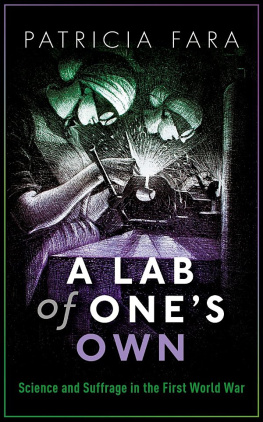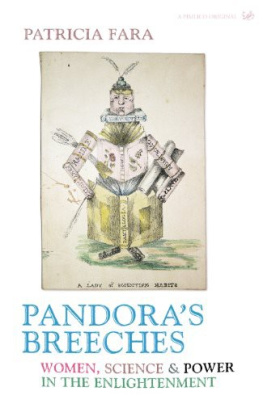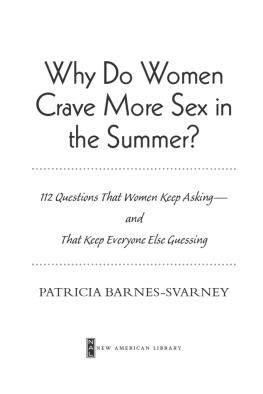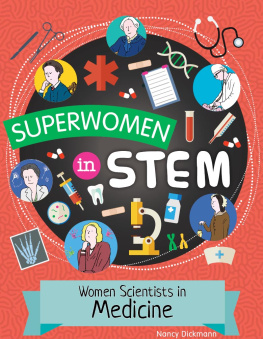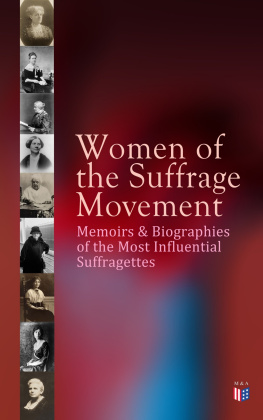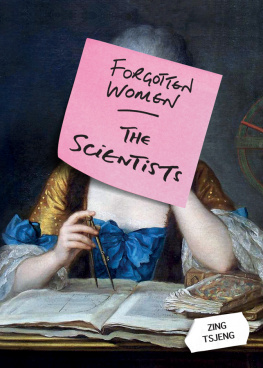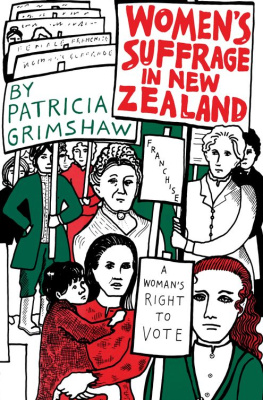A Lab of Ones Own
Praise for A Lab of Ones Own
an urgent and absorbing tale. Faras impassioned yet rigorous work never falters or compromises in its search for a history that is both true and continues to matter a very great deal.
Charlotte Sleigh, Professor of Science Humanities,University of Kent
Fascinating [Patricia Fara] has uncovered the hidden, suppressed histories of scientists and clinicians who made great contributions to war and welfare, and she has woven a broader narrative of gain and loss that still resonates today.
Jeremy Sanders, Former Pro-Vice-Chancellorand Professor of Chemistry, University of Cambridge
The stories in this book made me very happy that I came of age in the middle of the 20th century, when the world of science welcomed a womans questions and valued her experiments.
Maxine F. Singer, President Emeritus,Carnegie Institution for Science
A book full of fascinating insight and anecdote about women working in or with science around the time of the 1st World War. So many hidden stories and amazing heroines.
Athene Donald, Professor of Experimental Physicsat University of Cambridge and Master of Churchill College
Vividly and movingly, A Lab Of Ones Own, brings to life the forgotten story of the scientific, mathematical, medical and technological contributions made by British women during the First World War, with legacies and lessons that still matter today. Patricia Fara deserves a medal.
Gregory Radick, Professor of Historyand Philosophy of Science, University of Leeds

Great Clarendon Street, Oxford, ox 2 6 dp , United Kingdom
Oxford University Press is a department of the University of Oxford. It furthers the University's objective of excellence in research, scholarship, and education by publishing worldwide. Oxford is a registered trade mark of Oxford University Press in the UK and in certain other countries
Patricia Fara 2018
The moral rights of the author have been asserted
First Edition published in 2018
Impression: 1
All rights reserved. No part of this publication may be reproduced, stored in a retrieval system, or transmitted, in any form or by any means, without the prior permission in writing of Oxford University Press, or as expressly permitted by law, by licence or under terms agreed with the appropriate reprographics rights organization. Enquiries concerning reproduction outside the scope of the above should be sent to the Rights Department, Oxford University Press, at the address above
You must not circulate this work in any other form and you must impose this same condition on any acquirer
Published in the United States of America by Oxford University Press 198 Madison Avenue, New York, NY 10016, United States of America
British Library Cataloguing in Publication Data
Data available
Library of Congress Control Number: 2017946189
ISBN9780198794981
ebook ISBN 9780192514172
Printed in Great Britain by Clays Ltd, St Ives plc
Links to third party websites are provided by Oxford in good faith and for information only. Oxford disclaims any responsibility for the materials contained in any third party website referenced in this work.
To the memory of Delia Graff Fara
Acknowledgements
I slid into this topic almost accidentally, and I owe an enormous amount to the expert scholars whose work has guided me. In particular, I am very grateful to David Edgerton for encouraging me to move beyond standard views of British wartime science and for commenting on a draft chapter, and to Marsha Richmond, not only for her inspiring articles but also for giving me permission to appropriate one of her titles: A Lab of Ones Own. In addition, I have greatly benefited from the helpful advice provided by anonymous reviewers.
To my surprise and delight, while I was writing this book, I was contacted by Viscount Davidson, whose grandfather played a crucial role in developing British wartime X-ray equipment. He has been exceptionally generous in sending me copies of family letters and photographs, and also for alerting me to the remarkable book-length memoir by Helena Gleichen, which I have never seen referred to elsewhere.
In May 2014, I presented a nascent version of this book at an international conference held at the Royal Society and organized by the Women in Science Research Network (WISRnet). I have greatly valued the support and enthusiasm of WISRnets members, especially Claire Jones and Sue Hawkins, who subsequently edited a special issue of Notes and Records of the Royal Society (March 2015). Two other women were unwittingly important influences while I was writing this book: Karolyn Shindler, exemplary biographer of Dorothea Bate, and Elizabeth Crawford, whose marvellous posts on suffrage campaigners kept arriving in my inbox.
My agent Tracy Bohan, and my OUP editors Matthew Cotton and Luciana OFlaherty, all showed extraordinary patience while I was completing the manuscript, and this book would certainly never have been published without their help. I am also very grateful to my meticulous copy editor, Henry MacKeith: I take full responsibility for any surviving mistakes.
I can only apologize to the many other friends and colleagues who have been extremely cooperative but will remain unmentioned in the interests both of brevity and of avoiding a confessional tale about my life during the last few years. There is, however, one exceptionClive Wilmer, who generously wielded his exacting red pencil on an entire draft, and tolerated many vacillations along the way.
Contents
| CCC | Churchill College Cambridge |
| IWM | Imperial War Museum Womens Work Committee |
| LSE | Womens Library, London School of Economics |
| NCC | Newnham College Cambridge |
| NCC-WW | War Work, 191418 compiled by Edith Margaret Sharpley and transcribed by Laura Archer-Hind, 1922 (at Newnham College Cambridge) |
Her full nature, like that river of which Cyrus broke the strength, spent itself in channels which had no great name on the earth. But the effect of her being on those around her was incalculably diffusive: for the growing good of the world is partly dependent on unhistoric acts; and that things are not so ill with you and me as they might have been, is half owing to the number who lived faithfully a hidden life, and rest in unvisited tombs.
George Eliot, Middlemarch, 18712
The past is never dead. Its not even past.
William Faulkner, Requiem for a Nun, 1951
He picked up the lemons that Fate had sent him and started a lemonade-stand.
Elbert Hubbard, The King of Jesters, 1915
Gentlemen of the House of Commons. This ancient phraseis now out of date. Its superannuation is but one indication of the tremendous breach in Parliamentary tradition caused by the election to the Houses of Commons of Viscountess Astor.In the first place, where is Lady Astor to sit?And, if she wears a hat, should she remove it when she rises to speak, as male M.P.s are bound to do?
The Times, 29 November 1919
In the summer of 1908, eleven young women with similar hairstyles posed for a photograph ( group: a century ago, there were twenty-three colleges at Cambridge, but only two of them accepted women. And cricket was a mans game.

